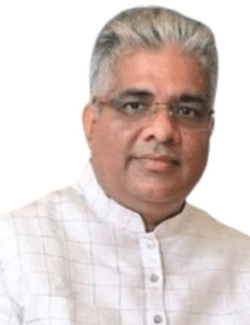Bhubaneswar: The Government of India has approved a 100 bedded Employees’ State Insurance Corporation (ESIC) Hospital at Balasore.
Considering the increase in the number of workers, the proposal for setting up a 100 bedded Hospital was approved at the 190th meeting of Employees’ State Insurance Corporation (ESIC) held under the chairmanship of Union Minister for Labour & Employment Bhupender Yadav at Chandigarh.
Earlier, the Centre has accorded in-principle approval to set up four new ESI hospitals at Jagannath Prasad in Bhubaneswar, Duburi in Jajpur, Paradeep in Jagatsinghpur and Jharsuguda.
While the proposed ESI hospital in Bhubaneswar will have 150-beds, 100-bedded hospitals will be set up at each of Duburi and Jharsuguda. Further, a 30-bedded ESI hospital will be established at Paradeep, sources said.
Further, the ESIC had also given approval for upgradation of the existing ESI Scheme (ESIS) hospital at Bhubaneshwar from 50 to 100 beds.
At present, two ESIC hospitals, six ESIS hospitals and 41 ESI dispensaries are functioning in the State.
he Centre has also approved setting up of 100 bedded Hospitals at Belagavi (Karnataka), Shamshabad (Telangana), Baramati (Maharashtra), Kishangarh and Ajmer (Rajasthan), along with 30 bedded ESI Hospital at Kurnool (Andhra Pradesh) and 350 bedded ESI Hospital at Greater Noida (Uttar Pradesh).
In addition to these, it was also decided to upgrade the newly approved 30 bedded ESIC Hospital at Rangpo, Sikkim to 100 bedded and to take over the ESIS Hospital, Gunadala, Vijayawada (Andhra Pradesh) and Maithan, Ranchi (Jharkhand) from the State Governments.
The newly taken over hospitals will be directly run by ESIC to provide better medical care and facilities to workers and their family members.
Keeping in view the sparsely populated north-eastern region, acute shortage of private hospitals/dispensaries/nursing homes etc. and financial position of ESI Scheme in North Eastern States, ESIC decided to continue providing financial support to North Eastern States & Sikkim in running the ESI Scheme. The entire expenditure up to the ceiling will be borne by ESI Corporation for North Eastern States (Except Assam) w.e.f. financial year 2023-24.
In order to provide relief to Insured Workers who became unemployed during the Covid-19 pandemic, ESIC in the meeting agreed to the proposal of extending the benefits available under Atal Beemit Vyaktikalyan Yojana for two more years.
Atal Beemit Vyakti Kalyan Yojana (ABVKY) is a welfare measure in the form of cash compensation up to 90 days once in lifetime of the worker in the contingency unemployment.
Foreseeing the considerable increase in the number of Insured Workers and their dependents coming under the ambit of ESI Scheme after the implementation of Social Security Code – 2020, Bhupender Yadav directed ESIC to lay emphasis on strengthening and expanding the medical services infrastructure by adopting multipronged strategies for providing primary medical care to the IPs and their beneficiaries.
Facilities of drugs/dressings and consumables under ESIC will also be provided free of cost to them. It will benefit lakhs of general public in the adjoining areas for availing hassle-free quality medical care free of cost.
Besides these, Revised Estimates for the year 2022-23, Budget Estimates for the year 2023-24 and Performance Budget for the year 2023-24 of ESI Corporation were deliberated upon and approved along with other agenda items.
In a separate meeting with the Zonal Medical Commissioners, Medical Commissioners, Insurance Commissioners and Regional Directors of ESIC under the chairpersonship of the Union Labour Minister, issues such as reforms in the referral system, optimal utilisation of resources in health care facilities, reaching the unreached (unorganised sector workers) and occupational diseases were deliberated and action points identified.
The meeting was attended by Secretary, Ministry of Labour and Employment, Arti Ahuja, and Director General, ESIC, Rajendra Kumar. Principal Secretaries/Secretaries of the State Governments, representatives of employers, employees and experts of the medical field were also present during the meeting.


